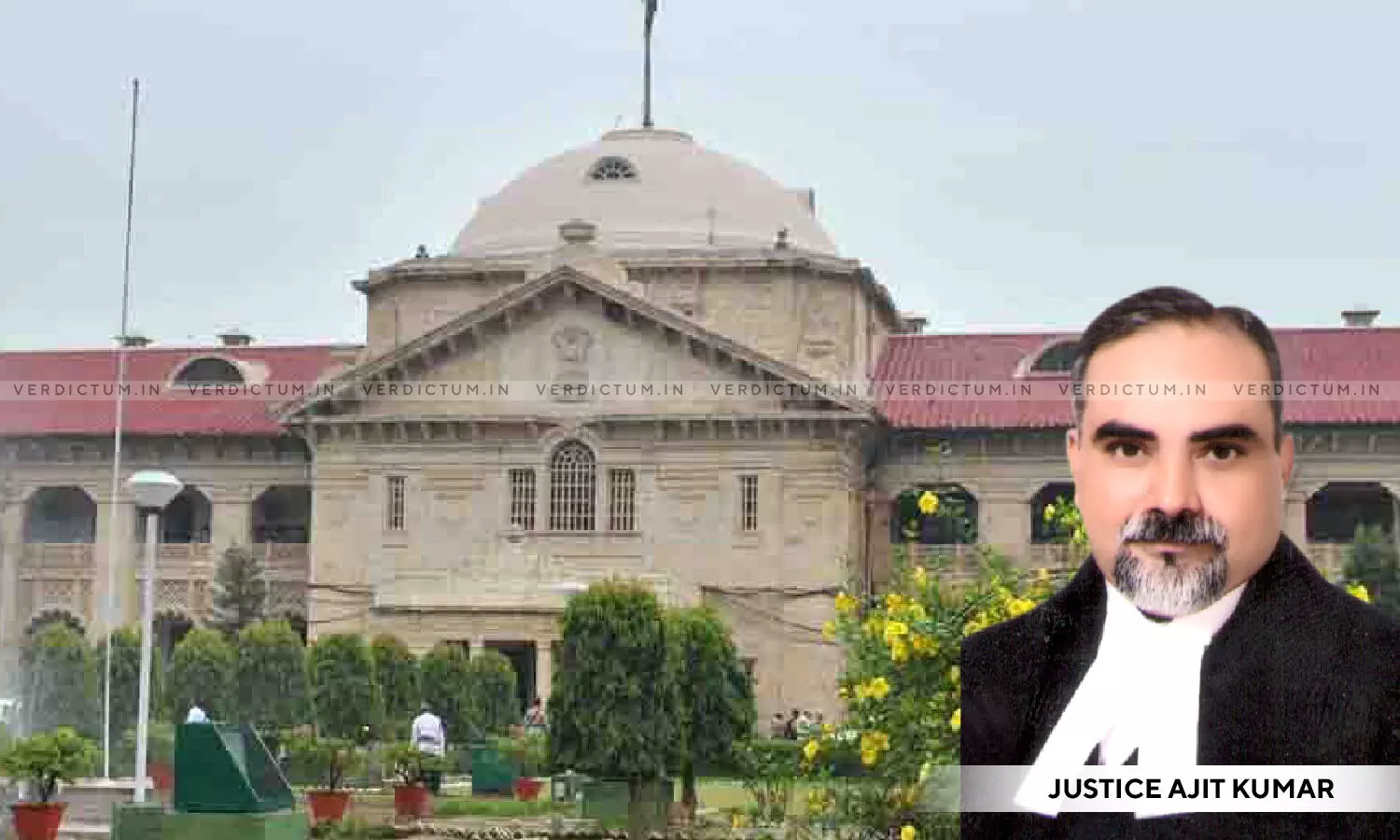
Justice Ajit Kumar, Allahabad High Court
Allahabad High Court: Deceased Employee's Successor Entitled To Question Disciplinary Authority, Denial Of Post Terminal Dues Affects Them
 |
|The Allahabad High Court was considering a Writ Petition against an order of the Commissioner dismissing the Departmental Appeal of Husband of the Petitioner on the ground that Appeal would abate on account of death of the Petitioner's Husband.
The Allahabad High Court has held that an Appeal against a Departmental Enquiry is not automatically abated upon his death and legal heirs are authorized to avail the remedy as it has serious adverse civil consequences resulting in the denial of post terminal dues.
The Court was considering a Writ Petition against an order of the Commissioner dismissing the Departmental Appeal of the Husband of the Petitioner on the ground that Appeal would abate on account of death of the Petitioner's Husband.
The single bench of Justice Ajit Kumar observed, ".....an employee if is working in establishment, which may be a pensionable establishment and where the family pension rights are also vested with the dependents of the family or otherwise also where the dues are inherited by the dependents of the employee by succession, such cause of action would survive till the last available statutory remedy is exhausted. Even an employee's successor is entitled to question an order of the disciplinary authority as it has serious adverse civil consequences resulting in the denial of post terminal dues including right of compassionate appointment."
The Petitioner was represented by Advocate Pankaj Kumar Rai, while the Respondent was represented by the C.S.C.
Facts of the Case
Counsel for the Petitioner submitted that Departmental Appeal was preferred under Rule 11 of the U.P. Government Servant (Discipline and Appeal) Rules, 1999 which only provides for certain considerations on points that may emerge out in the Appeal and hence the Appeal would not be dismissed as to have got abated on account of death of her husband namely Appellant in the said Appeal.
It was argued that no law of abatement is attracted in the matter of service jurisprudence as the incidence of service which may entail monitory consequences are inherited by the heirs accordingly and in that event Appeal had stood allowed, then order of termination from service would have stand set aside and all consequential benefits would have been conferred upon to the late husband of the Petitioner and in turn to be succeeded by the present Petitioner.
Reasoning By Court
The Court at the outset noted that it is true that in service jurisprudence employer and employee relationship ceases to exist the moment contract of employment ceases but where the service conditions are governed by statutory rules, mere recitals contained in the appointment order would not govern service conditions.
It pointed out that in service matters where official records are maintained, heirs automatically succeed to get the dues and no law of substitution would be applicable and since in the case in hand, I find that the U.P. Government has framed rules namely 1999 Rules providing for disciplinary actions to be taken against an employee charged for any misconduct in discharge of duties and in the event, the charges are proved, the employee is liable to be visited with such penalties which may have adverse civil consequences.
It thus held that an Appeal against a Departmental Enquiry is not automatically abated upon his death and legal heirs are authorized to avail the remedy as it has serious adverse civil consequences resulting in the denial of post terminal dues.
The Petition was accordingly allowed.
Cause Title: Smt. Munni vs. State Of U.P. And 2 Others (2025:AHC:110984)
Appointment:
Petitioner- Advocate Pankaj Kumar Rai, Advocate Sandeep Maniji Bakhshi
Respondent- C.S.C.
Click here to read/ download Order